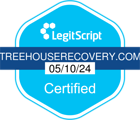A common issue amongst individuals in early sobriety is how to face problems, barriers, and even relapses with resilience and not resistance. Resistant behaviors are characterized by an inability to take past experiences, integrate new knowledge, and engage in more effective and productive actions as a consequence. When we resist, we decrease, markedly, the chances that we will come out of a negative experience with new wisdom that will help guide us in future situations. Resistance can actually be compared, to some degree, to the way define insanity. If we begin to start slipping back into old and maladaptive behaviors, we will eventually run into relapse. When we continue engaging in these same perspectives, thoughts, and actions that lead us to use and drink in the first place, a case could certainly be made that we are acting insane! Resistance also has roots in stubbornness as well, and stubbornness in the realm of addiction recovery can be kryptonite. The stubborn part of us says, “You got this! No one else can tell you how YOU ought to be living. Just do it your way, I mean, you ARE the expert of yourself, right?!” Many of us have adopted this attitude, and many of us have paid dearly for it as we relapse, resist difficult change, and then repeat the process all over again.
When discussing resilience, we can quickly understand that adopting this approach to recovery, and life in general, will yield better results, personal growth, patience, and a deeper understanding of who we are! Resilience can be accurately defined as the ability to persevere through severe struggles while being open to new knowledge that arises organically from these trials and tribulations. Part of the reason individuals become resistant is due to their lack of faith in the healing process. For example, if someone started down a dark tunnel, traveled for miles, and not been patient enough to be able to see light at the end of it, the consequence of this would be a belief that the tunnel goes on endlessly with no expectation of light. If that we someone’s experience, it would make sense that they might feel bitter and resentful towards the process. While it may be easy to see how one reaches the point of resisting further guidance and placing faith on the back burner, it still does not provide an answer to how to best pursuing recovery and sobriety. We can see that the application of resilience, however, is the most reasonable, most productive, most efficient, and most reliable strategy and perspective in the face of addiction.






